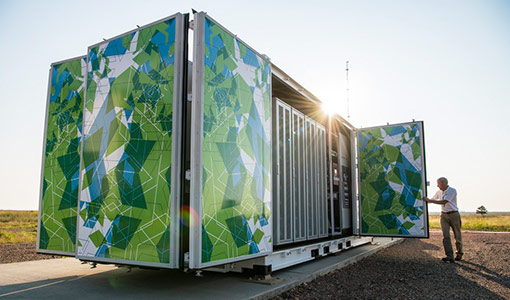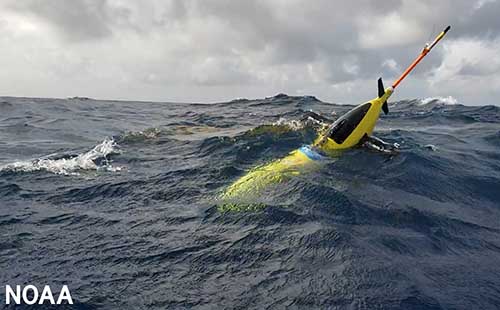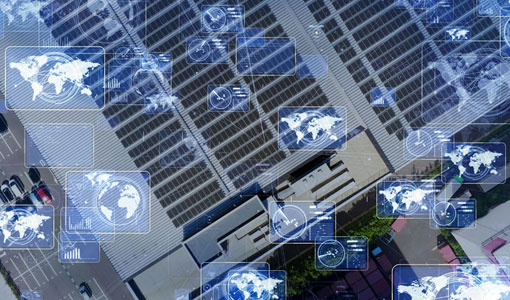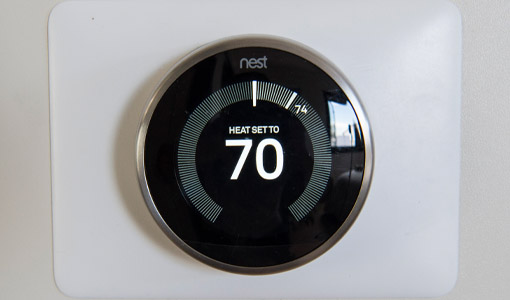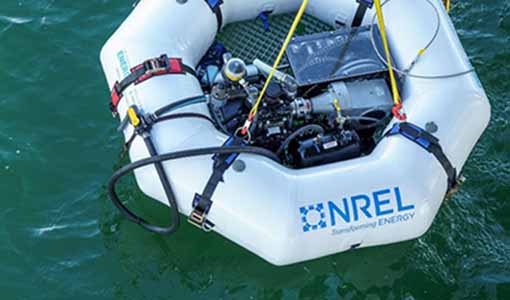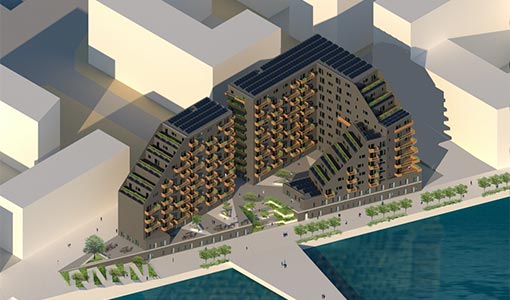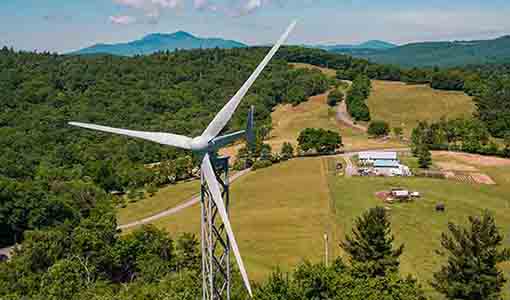March 2022
Amazon Joins NREL-Led BOTTLE Consortium To Help Change the Way We Recycle
A new collaboration between Amazon and NREL-led BOTTLE Consortium could be a major step toward developing solutions to global plastic pollution.
Harnessing Hydropower To Achieve a Sustainable Future
NREL Hydropower Technical Lead Greg Stark reflects on how the conversation around hydropower is changing and NREL is honored to be part of it in 2022.
Battery Research Tackles New Challenges for Behind-the-Meter Stationary Storage Systems
Researchers at NREL are leading the development of new lithium-ion (Li-ion) battery designs specific to stationary storage requirements.
More Power to the Women
For Women's History Month 2022, the NREL marine energy and hydropower groups are taking a look at the work of six NREL women who are interested in renewable energy technologies, specifically water power technologies. Here are the second three.
Creativity and Exploration Drive Marine Energy Research
NREL Marine Energy Team Lead Mike Lawson believes 2022 will be defined by collaboration with current and future industry leaders.
Power to the Women
For Women's History Month 2022, the NREL marine energy and hydropower groups are taking a look at six NREL women who are interested in renewable energy technologies, specifically water power technologies. Here are the first three.
Back-to-Back: Fossil Ridge Wins Colorado High School Science Bowl for Second Year in a Row
Defending their title and defeating 16 teams from across the state, a Fossil Ridge High School team has become the winners of the 32nd annual Colorado Regional High School Science Bowl.
Six Wave-Powered Prototypes to Set Sail
Six teams of marine energy innovators are advancing from the DESIGN to the BUILD Contest of the Ocean Observing Prize with their ocean-observing technologies.
Aging Gracefully: How NREL Is Extending the Lifetime of Solar Modules
DuraMAT, a multi-laboratory consortium led by NREL, is exploring ideas that could extend solar module lifetime up to 50 years.
Collaboration With UL Supports Development of New Requirements for Cybersecurity and Modern Energy Systems
In collaboration with UL, the National Renewable Energy Laboratory (NREL) is developing an Outline of Investigation for a cybersecurity certification standard for distributed energy resources (DERs) and inverter-based resource (IBR) devices.
News Release: Scientists Show Large Impact of Controlling Humidity on Greenhouse Gas Emissions
Greenhouse gas emissions from air conditioners are expected to climb as economic growth drives efforts to control both temperature and humidity, according to an analysis by scientists from the National Renewable Energy Laboratory and Xerox PARC.
News Release: 2022 NREL Industry Growth Forum Presenters Will Pitch to Motivated Cleantech Investors
NREL announced today the list of 40 presenters for the 2022 NREL Industry Growth Forum (IGF), which is set for April 13-14 at the Gaylord Rockies Resort and Convention Center in Denver, Colorado. The selected companies represent a wide range of clean and sustainable technology startups from around the world.
Trial by Water: NREL's Wave-Powered Desalination Device Sets Sail
NREL researchers recently tested a hydraulic and electric reverse osmosis wave energy converter off the coast of North Carolina ahead of Waves to Water Prize finalists' desalination prototype trials.
55 Solar Decathlon Design Challenge Teams Advance as Finalists
Fifty-five teams representing 38 universities are advancing as finalists in the U.S. Department of Energy Solar Decathlon 2022 Design Challenge.
Research Team Advances Biological Alternative to Producing Common Petrochemical
Engineers have dreamed of programming organisms to sustainably produce ethylene, a chemical nicknamed "king of petrochemicals" for its importance in plastics. Now, one pathway to this petrochemical is nearing reality, via a photosynthetic bacterium that is genetically specialized to turn sunlight and carbon dioxide into ethylene.
Q&A With Meredith Doyle: Impatient To Save the World
As part of the Q&A profile series "Manufacturing Masterminds," Meredith Doyle discusses her perspectives on the future potential for plant-based plastics, equity issues surrounding plastics pollution, and more.
NREL Issues Competitiveness Improvement Project Request for Proposals
NREL has issued a request for proposals for the Competitiveness Improvement Project, which supports distributed wind energy.
February 2022
News Release: NREL Selects Amanda Kolker To Lead Geothermal Energy Program
NREL has named Amanda Kolker as the laboratory program manager for geothermal energy.
Looking Back on a Sunny Legacy
When it comes to concentrating solar power (CSP) research, Mark Mehos has seen the industry growth and solar boom firsthand. CSP technologies—capturing sunlight to produce heat that drives thermoelectric generation systems—had their beginnings in the mid-1980s, at the dawn of his 35-year career at NREL.
NREL Bioengineering Process Prepares To Make a Splash
When Americans turn on a faucet, they rely on public treatment systems to ensure the water is safe to drink. Recently, Mars Materials was granted an option for an exclusive license to use NREL's renewable acrylonitrile technology in producing polyacrylamide flocculants for commercial use in water treatment systems.
Last Updated May 28, 2025



